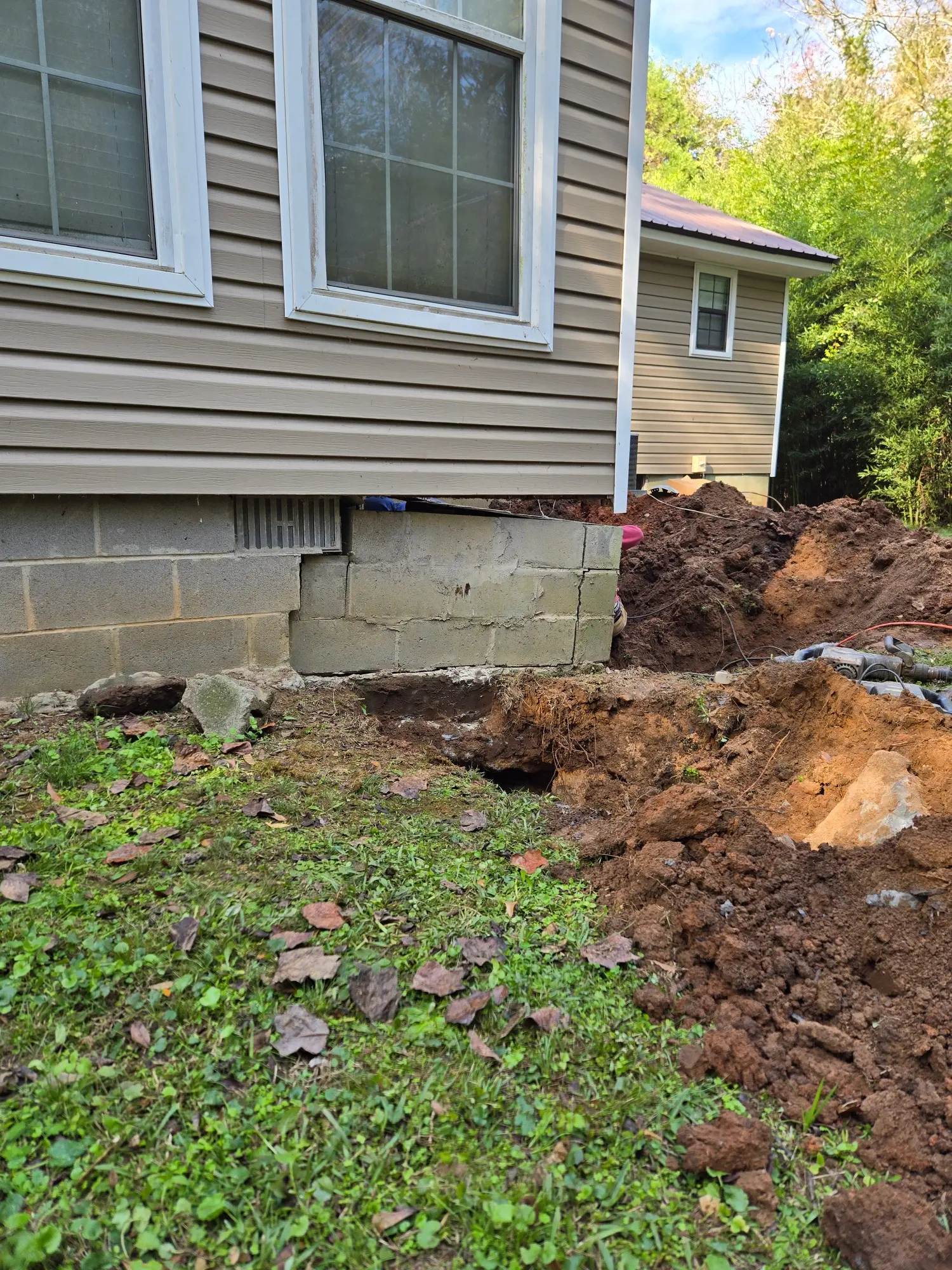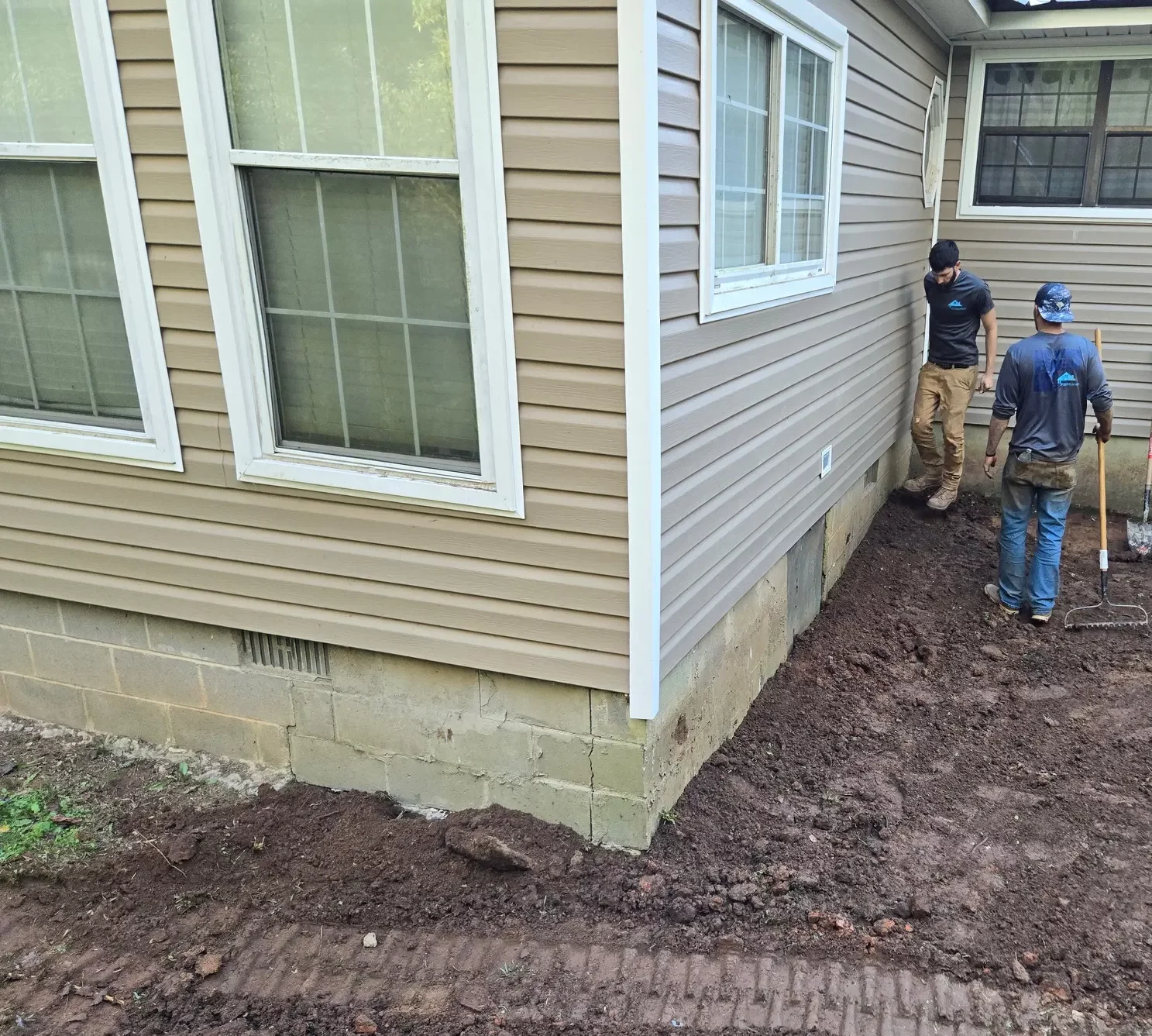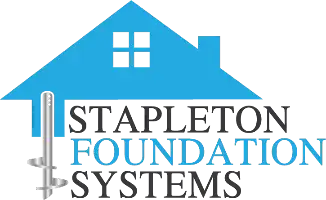Protecting Your Home’s Integrity, One Foundation at a Time
FOUNDATION REPAIR SERVICES IN MIDDLE GEORGIA

Contact Middle Georgia’s Local Foundation Repair Experts
"*" indicates required fields
YOUR FOUNDATION IS OUR FOCUS – BECAUSE YOUR HOME DEPENDS ON IT


SIGNS YOUR FOUNDATION MIGHT BE FAILING
Not sure if what you’re seeing is actually a big deal, or just normal settling?
These are the most critical warning signs we consistently advise every Middle Georgia homeowner to watch for:
CRACKS IN BRICK, BLOCK, OR DRYWALL
UNEVEN OR BOUNCY FLOORS
GAPS FORMING IN YOUR WALLS
STICKY DOORS & WINDOWS
EXTERIOR ELEMENTS SEPARATING
MOISTURE OR MOLD IN YOUR CRAWL SPACE OR BASEMENT
DON’T IGNORE THE SIGNS
If you’re noticing even one or two of these indicators, it’s a strong signal that it’s time to get a professional foundation inspection. Catching these issues early is genuinely the best way to prevent them from escalating into much larger, more complex, and more expensive repairs down the road.
WHAT CAUSES FOUNDATION PROBLEMS IN GEORGIA?
Other Common Causes of Foundation Issues
- Poor or inadequate drainage systems around your home’s perimeter.
- Improper grading of the ground, directing water toward the foundation instead of away.
- Extended drought conditions that cause severe soil shrinkage.
- Inadequate soil compaction before construction, or poorly designed footings.
- The natural aging process or original construction flaws in older foundations.

Other Common Causes of Foundation Issues
- Poor or inadequate drainage systems around your home’s perimeter.
- Improper grading of the ground, directing water toward the foundation instead of away.
- Extended drought conditions that cause severe soil shrinkage.
- Inadequate soil compaction before construction, or poorly designed footings.
- The natural aging process or original construction flaws in older foundations.
OUR FOUNDATION REPAIR SOLUTIONS
STEEL PUSH PIERS
HELICAL PIERS
SLAB PIER SYSTEMS
CRAWL SPACE SUPPORT JACKS
WALL ANCHORS & CARBON
FIBER REINFORCEMENT
It’s important to know that we never use a one-size-fits-all approach. Every home receives a detailed,
customized repair plan based on a thorough inspection of its specific issues and conditions.

Our Crews Are Experienced, Professional, And Respectful Of Your Property. We Ensure The Work Area Is Kept Clean And That The Job Is Done Right The First Time, With Careful Attention To Detail.
HOW THE PROCESS WORKS
Foundation Systems is straightforward:
Ask The Experts!
Q: What are the signs that my foundation needs repair?
Common indicators include cracks in walls or ceilings, uneven or sloping floors, sticking doors or windows, and gaps around door or window frames.
Q: Can foundation repairs be done during winter?
Yes, most foundation repairs can be performed year-round.
Experienced contractors have the tools and materials to work even when the ground is frozen.
Q: How long does a typical foundation repair take?
The duration varies based on the repair’s complexity, but many foundation repairs can be completed in just one day.
Q: How do I know which type of foundation repair my home needs?
That’s where our local expertise comes in. Every Macon home is different—soil conditions, foundation type (slab vs. crawl space), and damage severity all factor into the repair approach. During our free inspection, we assess signs of foundation damage such as sloping floors, gaps around windows, stair-step cracks in bricks, or sagging crawl spaces. Based on this evaluation, we’ll recommend the most effective foundation repair solution—from pier systems and wall anchors to full crawl space encapsulation.
Q: Is foundation damage common in Macon, GA?
Yes. Foundation problems are especially common in Macon due to our region’s expansive clay soil, high humidity, and seasonal rain patterns. These conditions can cause the ground to shift dramatically, leading to foundation settlement, slab cracks, bowing walls, and crawl space moisture issues. Homes in Macon built on older or improperly compacted soil are particularly vulnerable. That’s why regular inspections and early detection are key to protecting your property.
Q: What happens if I ignore foundation problems?
Delaying foundation repair can significantly worsen your home’s structural issues. Cracks in your foundation walls or floors can expand, doors and windows may stop functioning properly, and moisture can infiltrate your crawl space—leading to mold, wood rot, and air quality issues. In extreme cases, neglecting a settling or sinking foundation can compromise the structural integrity of your entire home. Investing in timely repairs not only protects your property value, but also prevents more expensive damage down the road.
Q: Will foundation repair disrupt my daily life?
We understand that home repairs can be stressful. At Stapleton Foundation Systems, we minimize disruption by using efficient, non-invasive methods like crawl space jacks, helical piers, and polyurethane injections when appropriate. Most foundation repairs are completed in 1–3 days depending on the severity of the issue. Our crew respects your time and property—we’ll keep the jobsite clean, communicate clearly, and ensure a smooth experience from start to finish.
Q: Do you offer financing for foundation repairs in Macon?
Absolutely. We provide flexible foundation repair financing options to help Macon homeowners move forward with essential structural work. Whether you’re dealing with cracked walls, a sinking foundation, or uneven concrete slabs, our budget-friendly payment plans make it easier to restore your home’s stability without delay. During your free inspection, we’ll walk you through financing options tailored to your needs.
